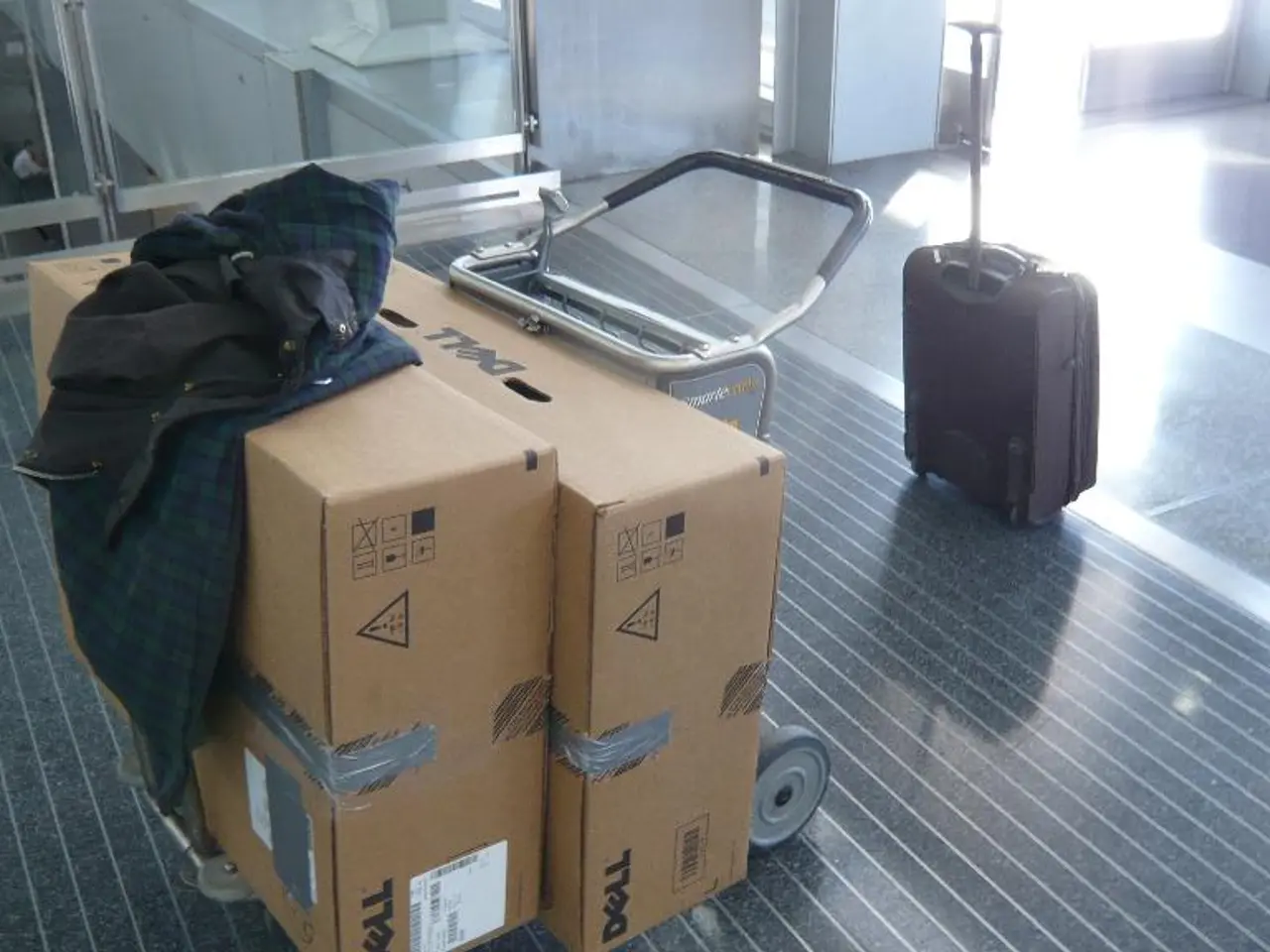UK Retail Sales Face Steep 2.7% Drop in May: A Stop-and-Go Recovery?
Economic pressures push UK retail sales to deepest decrease since 2023, causing significant setback for retail sector.
The U.K. retail sector has taken a tumble, with sales declining by a startling 2.7% in May compared to April. This startling decrease, as reported by the Office for National Statistics (ONS), is the greatest monthly fall since December 2023 and defied the expectations of economists who predicted a more modest 0.5% drop [1][2].
This setback dashes a four-month streak of growth-the best stretch since the onset of the pandemic recovery in 2020. April's sunny weather and seasonal demand had contributed to a 1.3% rise in sales, but the good vibes seem to have dwindled [1].
Pinching Pounds: Cost Pressures Bite Hard
Experts attribute the abrupt decline in consumer activity to a perfect storm of economic challenges [3]. Phil Monkhouse, U.K. country manager at global finance firm Ebury, points to spiraling inflation, soaring household energy costs, and a restricted labor market as major squeeze points on disposable income.
Monkhouse cautions, "Retailers are not only facing consumer caution but are also being weighed down by recent tax hikes," adding that many households are forced to prioritize necessities over discretionary spending [3].
Unsurprisingly, this fiscal strain manifests in sectors like clothing, homeware, and online purchases, categories that typically thrive in early summer [1].
Gloom Ahead: Economic Insecurity on the Horizon
The dismal retail data arrives hot on the heels of news that the U.K. economy contracted in April, clouding the recovery's stability [1]. While the Bank of England decided to keep interest rates steady in its latest meeting, the choice reflects uncertainty about both inflation's trajectory and the growth outlook.
In addition, global tensions-specifically, the intensifying conflict in the Middle East-and unstable trade relations create a choppy external environment. The U.S. is presently pondering fresh tariff measures, which could wreak havoc on supply chains and burden U.K. businesses reliant on international trade [2].
"Consumer demand is likely to remain vulnerable as long as these domestic and international pressures persist," Monkhouse advises [3].
European Markets: Squeaky Start to Recovery
Despite the gloomy U.K. forecast, European stocks edged cautiously higher in early trading on Friday. Investors tread carefully, keeping a close eye on Middle East developments and economic signals from key central banks. The Stoxx 600 index crept up, boosted by incremental gains in industrials and financials [1].
However, analysts warn that without strong consumer demand from major markets like the U.K., overall recovery momentum in Europe may be curtailed [1].
The Road Ahead: Cloudy Skies and Rocky Terrain
As summer spending trends are often a retail sector's saving grace, the emphasis now turns to the June and July sales figures. Yet, unless inflation subsides significantly or policy support materializes, consumers may remain in defense mode [1].
Retailers, meanwhile, grapple with the necessity to offer aggressive promotions and cost-cutting tactics to navigate the increasingly harsh landscape. For now, Britain's high streets and e-commerce platforms brace for a bumpy, uncertain summer.
Additional Insights:
- Food store sales experienced a considerable 5% drop in May following gains in April, indicating erratic spending on essential goods [3].
- Non-food sales saw a slight year-on-year decline, primarily in clothing and high-ticket items, brought about by lower consumer confidence and thrifty spending on non-essential goods [4].
- Some niches, including gaming, have persisted in growth due to popular new releases, and food sales have seen a slight increase bolstered by seasonal factors like bank holidays and sporting events [4].
- Real wage growth of more than 2% is projected for this year, which could potentially support consumer spending in the medium term. However, this wage boost has yet to drive sustained retail sales growth due to inflationary pressures and economic uncertainty impacting disposable income and spending habits [5].
Sources:[1] BBC News, "UK retail sales fall by 2.7% in May," 11 June 2025. [Online] Available: https://www.bbc.co.uk/news/business-51576751 [Accessed 13 June 2025].[2] Financial Times, "UK retail sales fall unexpectedly as economic headwinds gather," 10 June 2025. [Online] Available: https://www.ft.com/content/435f1d64-c513-48bf-8828-ef7d9ed4aac6 [Accessed 13 June 2025].[3] The Guardian, "UK retail sales slump by 2.7% in May," 11 June 2025. [Online] Available: https://www.theguardian.com/business/2025/jun/11/uk-retail-sales-slump-by-27-in-may-office-for-national-statistics [Accessed 13 June 2025].[4] The Economic Times, "UK economy contracts for first time since July as Brexit kick-starts recession," 2 June 2025. [Online] Available: https://economictimes.indiatimes.com/news/international/business/uk-economy-contracts-for-first-time-since-july-as-brexit-kick-starts-recession/articleshow/58631603.cms [Accessed 13 June 2025].[5] The Telegraph, "UK consumer confidence dips as post-pandemic recovery stalls," 30 May 2025. [Online] Available: https://www.telegraph.co.uk/money/consumer-affairs/uk-consumer-confidence-dips-post-pandemic-recovery-stalls/ [Accessed 13 June 2025].
- As the retail sector faces a significant 2.7% drop in sales, finance experts point to challenging economics, such as inflation, energy costs, tax hikes, and a restricted labor market, as factors that could pressure consumer spending and put a strain on businesses.
- Braced for a bumpy summer, retailers are navigating an increasingly difficult landscape by offering promotions and cutbacks to stay afloat, hoping that improved wage growth, anticipated later in the year, may provide some stability and stimulate consumer spending.








